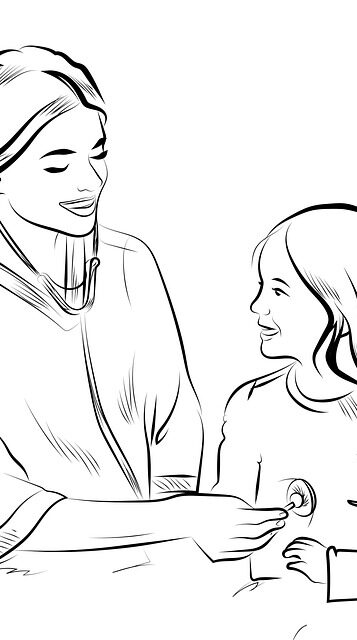24- Hour Access Line:
1-800-817-5292
Access Line:
M-F 8am to 5pm
442-265-1525
Children & Adolescent Services
The Children and Adolescents Outpatient Services Division provides a wide array of Specialty Mental Health Services (SMHS) at their outpatient clinics located in the cities located in the cities of Calexico, El Centro, Brawley, and Winterhaven. Children and adolescents are screened and assessed by highly qualified clinicians to identify their mental health needs, strengths, and goals. Depending on the identified needs, children and adolescents may receive one or more of the following SMHS: Medication Support, Mental Health Management. Eligible children and adolescents may also qualify for intensive SMHS such as Intensive Care Coordination (ICC), Intensive Home Based Services (IHBS), and Therapeutic Behavioral Services (TBS).
Intake Assessment
The first appointment is with a qualified clinician who conducts a comprehensive assessment to identify your individual needs, strengths, treatment history as well as your developmental, vocational, and social history.
Medication Support Services
This service is provided by a psychiatrist who assesses, prescribes, administers, and monitors medication effectiveness. Nursing staff also evaluates your health by collecting medical history and they monitoring your progress.
Therapy
Therapy is provided individually or in a group setting by qualified clinicians with the focus to assist individuals in resolving problem areas. Some of the therapy models focus on dealing with depression, anxiety, anger and socialization problems, adjustment, and symptoms related to traumatic experiences.
Rehabilitative Services
This service assists you and your family in the development of skills to improve or maintain your functioning related to learning, independent living and enhanced self-sufficiency.
Targeted Case Management
Services that provide assistance to access needed medical, educational, social, prevocational, vocational, rehabilitative, or other community services.
Crisis Intervention
An emergency response service for a condition which requires immediate intervention.
Inpatient Services
This service includes assessment of individual immediate needs and referral to contracted inpatient psychiatric services.
Specialized Outpatient Services
The following are specialized services for eligible children and youth in need of supportive services to remain at home or to maintain their current level placement:
- Therapeutic Behavioral Services (TBS): An intensive, short term, one-to-one service for children, youth and young adults who have serious emotional problems and are experiencing a stressful transition or life crisis. TBS is intended to supplement other specialty mental health services by addressing the target behavior(s) or symptom(s) that are jeopardizing the child, youth or young adult's current living situation or planned transition to a lower level of placement.
- Intensive Care Coordination (ICC): A service that ensures services are accessed, coordinated, and delivered in a strength-based, individualized, family/youth-driven manner.
- Intensive Home-Based Services (IHBS): Individualized, strength-based interventions designed to assist the child or youth develop the skills necessary for successful functioning and to provide the family with the ability to help the youth to successfully function in the home and community.
Children and Adolescent Outpatient Clinics
These clinics provide a wide array of services at numerous locations throughout the Imperial County.
Vista Sands Socialization Programs
313 Waterman Ave.
El Centro, CA 92243
(442) 265-7350
Mental Health Services Act (MHSA) Programs
313 Waterman Ave.
El Centro, CA 92243
(442) 265-7350
Children and Adolescents Outpatient Clinics
Brawley Outpatient Clinic
195 S. 9th Street
Brawley, CA 92227
(442) 265-5080
Calexico Outpatient Clinic
101 Hacienda Drive, Suite C
Calexico, CA 92231
(442) 265-6410

El Centro Outpatient Clinics
120 N. 8th Street
El Centro, CA 92243
(442) 265-1670
651 Wake Avenue
El Centro, CA 92243
(442) 265-7270
Winterhaven Outpatient Clinic/San Pasqual Family Resource Center
676 Baseline Road
Winterhaven, CA 92283
(442) 265-7291

Vista Sands Socialization Programs
The Vista Sands Children's Socialization Programs is a collaboration between Imperial County Behavioral Health Services and Imperial County School Districts. The programs are co-located at three (3) elementary schools in Brawley, Calexico, and El Centro. The Vista Sands Program is designed to assist elementary school aged children whose capacity to function at home, school, and community has been impaired by emotional and/or behavioral problems. The program encourages engagement of the child in a prosocial structured setting with the available supports from the family, school, and community. Admission is open to qualifying children throughout Imperial County who are receiving Specialty Mental Health Services and are between the ages of 7-12.
Brawley Vista Sands - Oakley Elementary
1401 B Street
Brawley, CA 92227
(442) 265-7245
Calexico Vista Sands - Kennedy Gardens
2300 Rockwood Avenue
Calexico, CA 92231
(442) 265-7240
El Centro Vista Sands - De Anza Elementary
1530 Waterman Avenue
El Centro, CA 92243
(442) 265-7235

Middle School Behavioral and Educational Program
Imperial County Behavioral Health Services worked in collaboration with Imperial County Special Education Local Plan Area (SELPA) and local middle schools to establish the Middle School Behavioral and Educational Program. The program is located within the Heber School District and hosted at Heber Middle School. The Middle School Behavioral Educational Program is designed to provide services for Middle and Jr. High grade students who are experiencing symptoms related to anxiety or emotional and/or behavioral distress, anger dys-control, post-traumatic stress, and/or depression, which severely impairs their daily functioning and interferes with their ability to learn and succeed at home, school, and the community. The primary goal of this program is to provide comprehensive educational and therapeutic interventions, maximizing the child's functioning in a manner that serves to strengthen the family unit, school performance, and social interaction. Admission is open to qualifying adolescents throughout Imperial County who are receiving Specialty Mental Health Services.
Middle School Behavioral and Educational Program
1052 Heber Avenue
Heber, CA 92249
(760) 337-6530
Mental Health Services Act (MHSA) Programs
Prevention and Early Intervention (PEI) - Trauma-Focused Cognitive Behavioral Therapy (TF-CBT)
The goal of the Prevention and Early Intervention (PEI) programs is to prevent and/or reduce the likelihood of mental illness from becoming severe and disabling, with an emphasis on improving timely access to services for unserved and undeserved populations. Additionally, the objective for PEI programs is to reduce and/or lessen the need for additional or extended health treatment by facilitating access to supports at the earliest signs of mental health issues. PEI Programs provide services that increase protective factors to improve the mental, emotional, and relational functioning of individuals. PEI programs such as Trauma Focused-Cognitive Behavioral Therapy (TF-CBT) and First Step to Success (FSS) integrate strategies to provide services to priority populations, by engaging children, youth, and adults and delivering services in the community outside of the traditional outpatient clinic. All PEI programs meet the Mental Health Oversight and Accountability Commission's (MHSOAC) priority of being culturally competent and linguistically appropriate to meet the needs of Imperial County residents.
MHSA PEI Program
313 Waterman Avenue
El Centro, CA 92243
(442) 265-7350
Presumptive Transfer
Http: //www.cdss.ca.gov/inforesources/foster-care/presmptive-transfer
Background
Presumptive Transfer is the prompt transfer of the responsibility for providing and paying for specialty mental health services (SMHS) for children and youth in foster care who are placed outside of the county in which they came into care.
Mission
Every child , youth, and non-minor dependent in foster care has a Child and Family Team (CFT) that is invested in the child or youth and family's success. Decisions about placement, case and treatment plans, and presumptive transfer of mental health services are discussed with members of the CFT. The CFT collectively develops a plan and makes decisions that meet the individual strengths and needs of the child and youth.
Goal
The goal of presumptive transfer is to provide children and youth in foster care with timely access to SMHS, consistent with their individual strengths and needs.
Please contact the following Access Unit staff for Presumptive Transfer related matters:
Anais Lopez, Program Supervisor I
Phone: (442) 265-1597
Fax: (442) 265-1703
https://www.cdss.ca.gov/inforesources/foster-care/presumptive-transfer/county-points-of-contact

